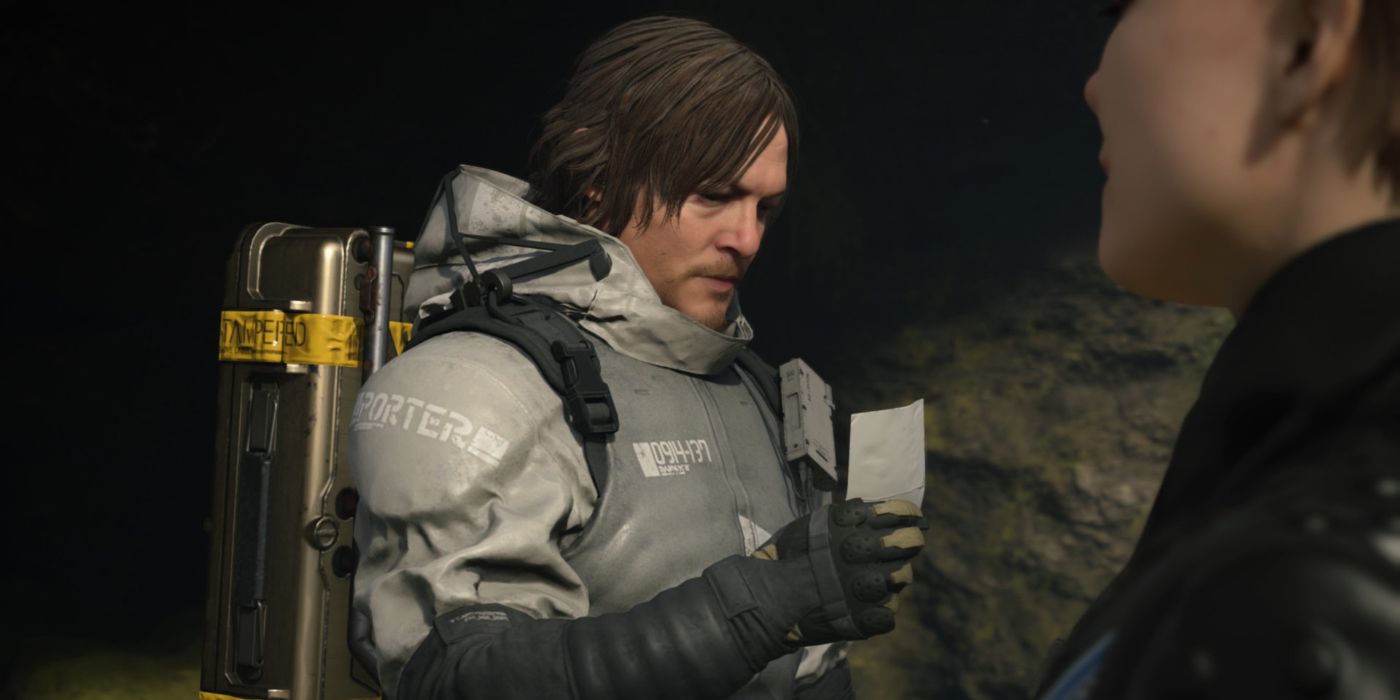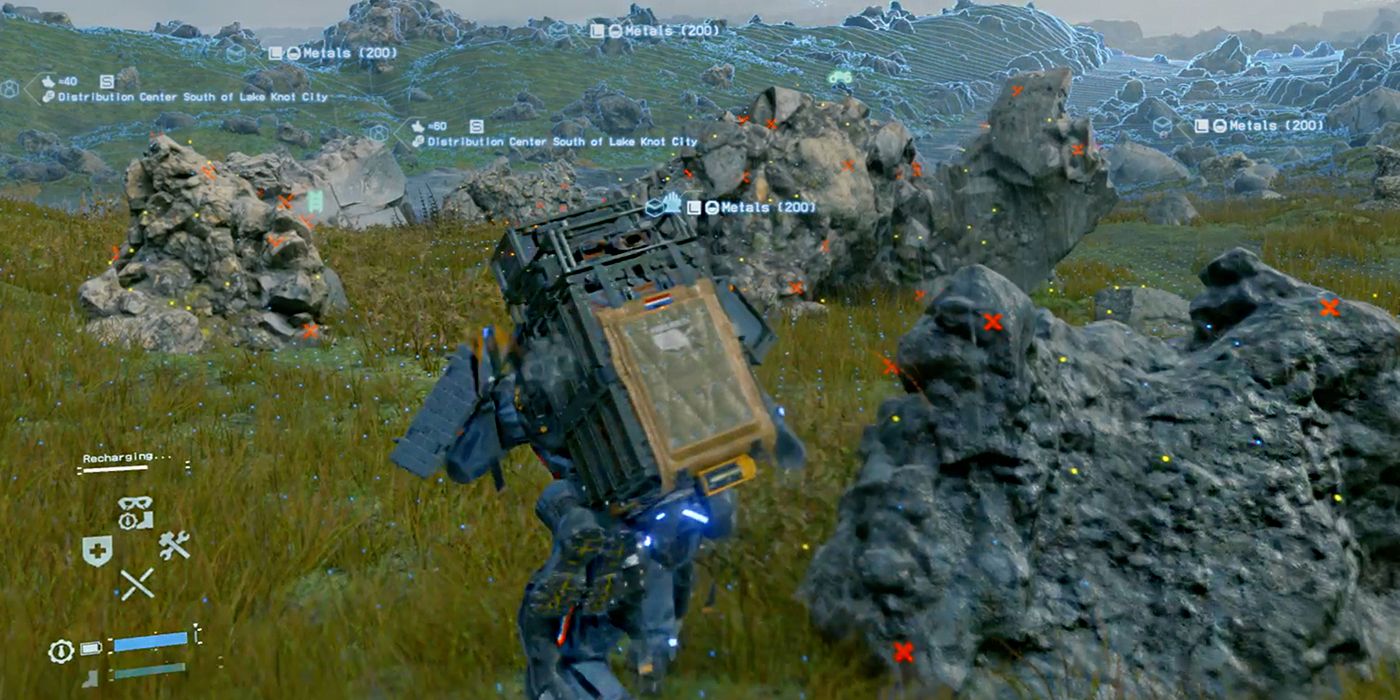When Hideo Kojima unveiled Death Stranding during E3 2016, initial images of the game were confusing to say the least. His teaser opened on a pile of stranded squids, and ended with a naked Norman Reedus clutching an infant while some floating figures looked down from the sky. It betrayed not a hint of gameplay, and each time journalists begged Kojima to elaborate, the famously enigmatic designer told them he was creating "a new genre," just like his Metal Gear series had done in the past.
Flash forward a few years, and players now know that Death Stranding puts gamers in the shoes of Sam, a delivery man who lends his services to a society that was torn to shreds after a mysterious extinction event. Haunted by spirits which cause nuclear-level blowouts whenever they get their invisible hands on a recently-diseased human, the remains of civilization have segregated into small, isolated settlements, and it's up to Sam to reconnect them. Death Stranding's plot makes sense in the logic of the world within the game, but what does it mean for ours?
According to Kojima himself, Death Stranding was born out of his long-standing frustration with the ever-increasing role violence played in popular entertainment. Linking it to current events such as the political success of Donald Trump and Brexit, Kojima said he wanted to make a game in which the player's objective was to "make America whole again," not shoot it to smithereens, as they're forced to do in other games. In a way, this was the same goal he had with Metal Gear, which — being one of the world's first stealth games — had players avoid enemies rather than fight them.
How 2020 Has Changed Death Stranding's Impact
Back in 2016, such a rationale might have seemed pedantic and, frankly, a little disingenuous. However, following the coronavirus pandemic and the worldwide civil rights protests in response to the killing of George Floyd, Kojima's world — which is under constant threat of natural disaster by the Beached Things and civil war by nihilistic terrorists such as Higgs — suddenly doesn't seem quite as alien as it once did. Even if Kojima is not a soothsayer, the parallels between Death Stranding's world and the real one are eerie to say the least.
Throughout his career Kojima has often been treated as a magician, but not always in a good way. While critics recognize his monumental contributions to the video game industry, some accuse him of using over-complicated and highly symbolic plot lines to make it seem as though his games have some or other deeper meaning when, in reality, the point they are trying to make is quite shallow. Like a great work of art, however, the story of Death Stranding remains relevant, extending the game's short-lived shelf life just a bit.


